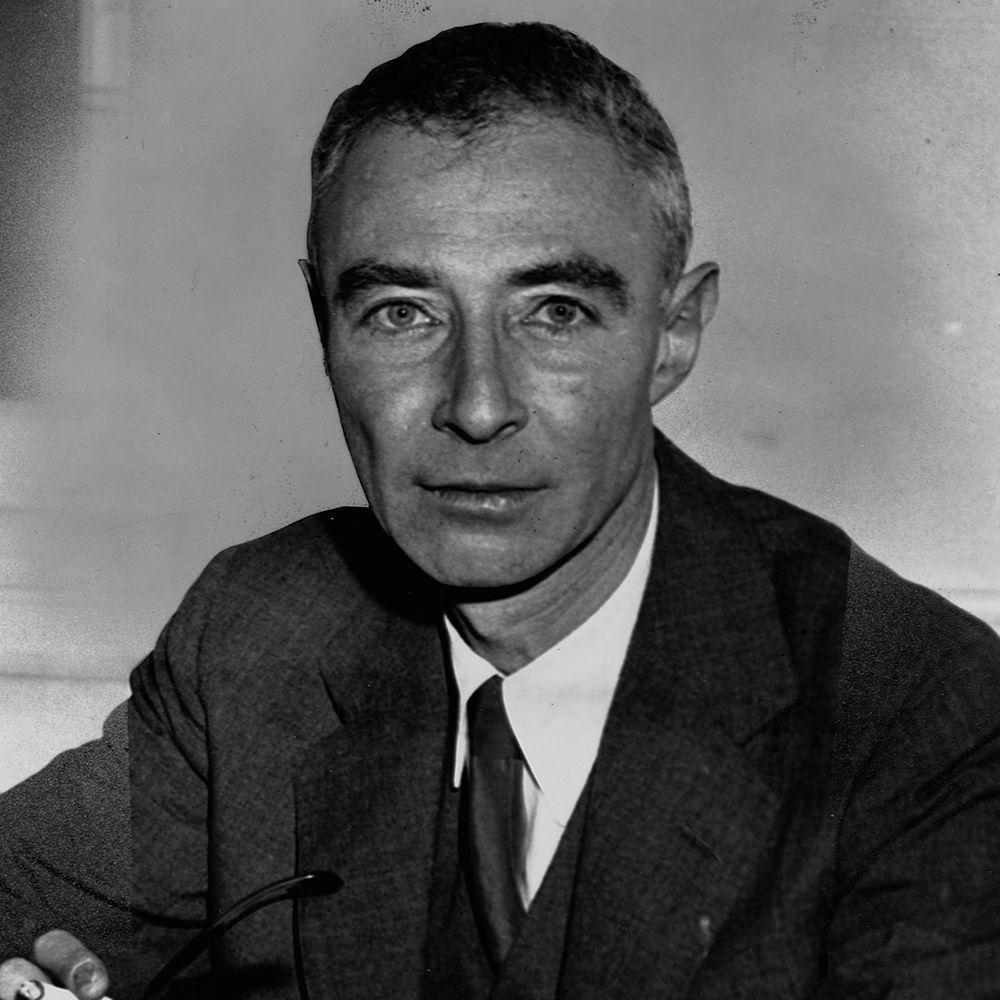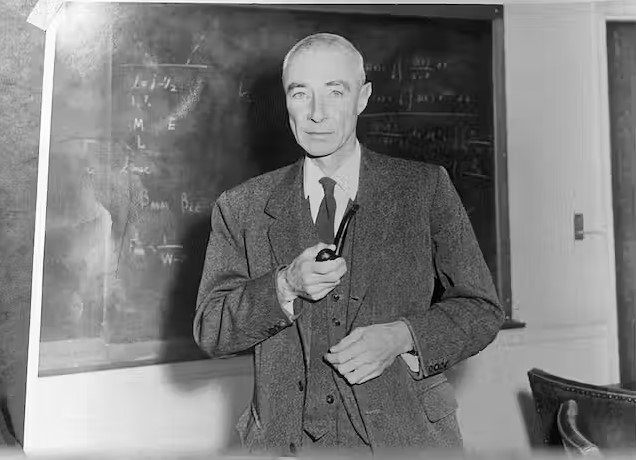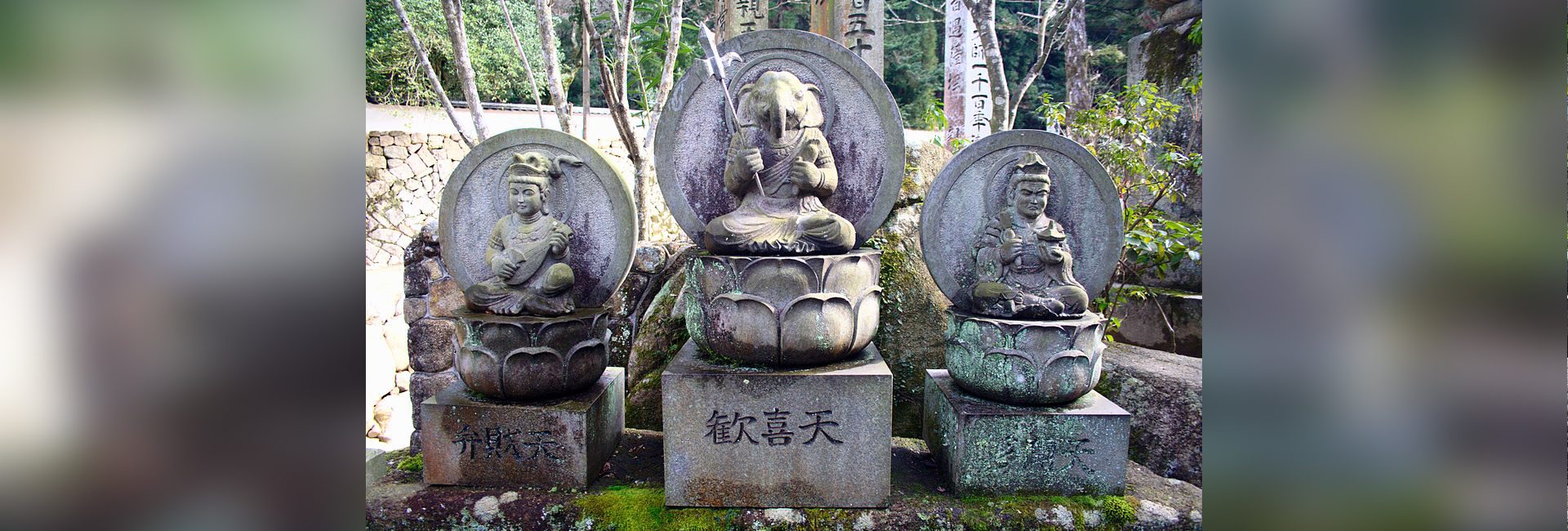(August 5, 2023) “Now I am become Death, the destroyer of worlds.” As Robert Oppenheimer watched the mushroom cloud at Point Zero, he recalled a scene from the Bhagavad Gita. As Krishna explains to Arjuna that he must do his duty, he takes on his multi-limbed form and says, “Now I am become Death, the destroyer of worlds.” The line flashed through Oppenheimer’s mind as he realised what he had created, and that “the world would not be the same” again. The true potential of the atom bomb dawned on him fully in that moment, and he understood the devastation it would cause.

Robert Oppenheimer
Christopher Nolan’s 2023 film, Oppenheimer, makes a passing mention of the Gita, choosing the line that is guaranteed to have the great effect – ‘Now I am become Death’. The usage – and the context in which it was used in the film – has sent ripples of outrage through India, while those on left dismiss the Gita as ‘fatalistic’ in their counter-arguments. Everyone seems to have it wrong, as Kai Bird and Martin Sherwin write in American Prometheus: The Triumph and Tragedy of J. Robert Oppenheimer, the physicist, who was a profoundly well-read man with a gift for languages, discovered the Gita in his twenties and his connection to it lasted for the rest of his life. Kai Bird even wonders if the Trinity Test was named as a reference to the Vedic triumvirate of Brahma, Vishnu and Shiva – Creation, Sustenance and Death. Global Indian takes a look at Robert Oppenheimer’s discovery of the Gita and how Vedanta went on to influence him as a scientist and as a human being.
Meeting with Arthur Ryder
Oppenheimer’s tryst with Sanskrit began when he arrived at Berkeley University to teach quantum mechanics, a subject that had not yet found a place in American theoretical physics. Also on the faculty was Arthur Ryder, a professor of Sanskrit. The two men couldn’t have been more different – Oppenheimer, who already had a reputation as a genius of quantum physics, was also known to be an intellectual (and moral) dilletante. He flirted with women, and communism alike. He attended communist gatherings with his brother and dated a young woman he met at one of these events. He read Marx, Ernest Hemingway, Sigmund Freud and the Gita, and was intrigued by all of them. Arthur Ryder, on the other hand, was a “Hoover Republican and a sharp-tongued iconoclast.”

Despite their differences, the two men were drawn to each other and soon, Ryder was teaching Oppenheimer Sanskrit. Oppenheimer had a gift for languages – prior to his arrival at Berkeley, he had learned Dutch in six weeks and delivered a lecture on quantum mechanics in the language. So, it wasn’t long before Oppenheimer had begun reading the Gita. It fascinated him instantly. He told friends that the Gita, which he called “The Lord’s Song,” was “the most beautiful philosophical song existing in any known tongue.” Ryder gifted him a copy of the book, which he kept on the bookshelf by his desk. He would even give copies of the Gita to his friends as gifts.
Orientalism
In 1933, Oppenheimer’s father gave him a Chrysler, which he immediately named Garuda, after the mount of Lord Vishnu. These symbolic gestures all spoke of a deeper resonance – Oppenheimer found comfort and scientific depth in Eastern philosophies. He wasn’t the only one. This was the time of Orientalism, and scientists like Werner Heisenberg, Erwin Schrodinger and Niels Bohr were influenced by it, apart from a number literary figures including a poet Oppenheimer greatly admired –T.S. Eliot. Heisenberg, whose work Oppenheimer built on at Los Alamos, said, “After the conversations about Indian philosophy, some of the ideas of Quantum Physics that had seemed so crazy suddenly made more sense.” Niels Bohr, another scientist whom Oppenheimer admired, had said, “I go into the Upanishads to ask questions,” while Schrodinger admitted that most his ideas and theories were influenced by Vedanta.
The impact of Robert Oppenheimer’s relationship with Vedanta and the Bhagavad Gita extended beyond his personal journey. It contributed to a broader cultural exchange, inspiring other scientists to explore the connections between science and spirituality. Robert Oppenheimer’s contributions to science are celebrated, but his reverence for Vedanta and Eastern philosophies adds a deeper layer to his legacy. His story serves as a reminder of the profound influence that ancient wisdom can have on modern scientific inquiry, and how the pursuit of knowledge can be intertwined with a search for greater understanding of the human condition.
- Follow Christopher Nolan’s 2023 film, Oppenheimer on Instagram

